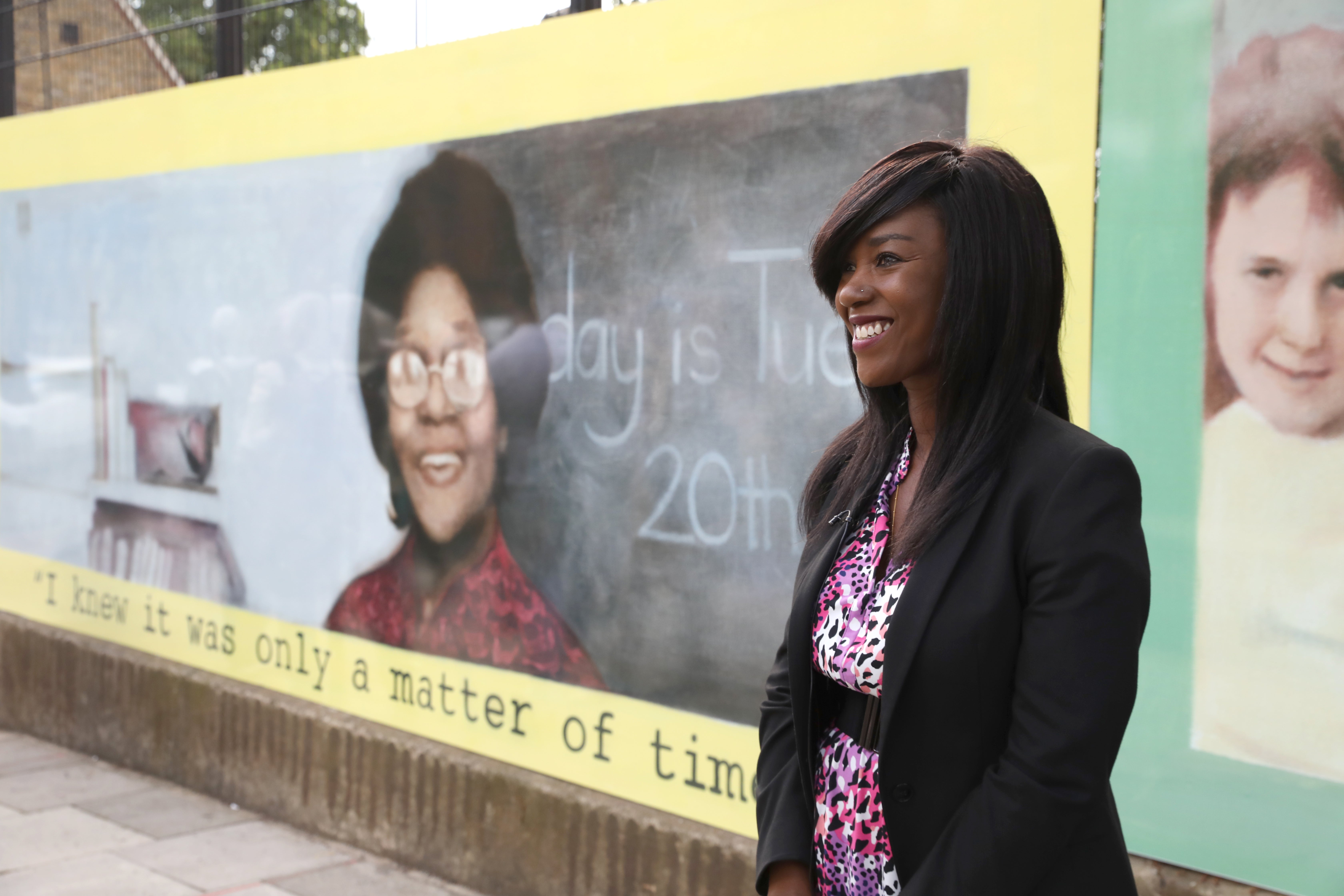
UK institutions must keep up momentum on diversity following Black Lives Matter protests and take their commitment further than “posting black squares” on Instagram, London’s first Black woman deputy mayor has warned.
Debbie Weekes-Bernard is urging companies to commit to dismantling systemic workplace inequalities and use the lessons learned since 2020 to “shift the dial” towards lasting changes.
Speaking to The Independent, the politician said that while George Floyd’s murder sparked widespread discourse around institutions, for the most part, lasting transformation on race has yet to be achieved.
“We’ve had a more open and transparent conversations about racism, possibly in a way that we’ve not had since the McPherson report [that followed the inquiry into the racist murder of Stephen Lawrence], which was another catalysing movement where people were talking about institutional racism,” Ms Weekes-Bernard said.
“However, what’s also been exposed is there have been some institutions which have responded to what happened in 2020, the black squares, and there’s been no depth to that.

“It’s important for organistions not to just post black squares on Instagram - which many did out of solidarity with Black people after George Floyd - but also to put money where their mouth is by looking at senior leadership team, how they procure services, examining the way staff who come from protected characteristics are cared for. Do your staff numbers reflect the numbers in our city, for example? There is more that can be done.
“The way that social media and the Black Lives Matter movement has energised young people of all ethnicities to talk about anti-Black racism, means if you are trying to make a change as an institution, people are going to hold you to account. Institutions should be prepared for people to call them out if they’re not doing what they should.”
According to recent research, employees from ethnic minority backgrounds remain hugely under-represented within some of the city’s biggest firms with Black, Asian and minority ethnic groups still being paid significantly less than their white colleagues.
Only six CEOs across 100 of the UK’s biggest companies (FTSE 100) come from a minority ethnic background and there are even fewer chairs from a minority ethnic background - just three in the FTSE 100.
Last month, City Hall unveiled its Building a Fairer City action plan which set out “practical steps” that organisations can take to tackle the deep-seated inequalities affecting the lives of Londoners which were brought about by the Covid-19 pandemic and exacerbated by the ongoing cost of living crisis. It offers tailored guidance to companies that indicate a desire to work towards building equitable structures within its ranka.

Black business-owners were less likely to access financial assistance during the pandemic and more likely to face closure, cross-party MPs found at the time while Black households are less likely to have savings and more likely to suffer from food insecurity amid ongoing soaring energy bills and tax increases.
Points on City Hall’s plan, for companies to adhere to, include hiring and promoting more Black and Asian staff members; implementing mandatory ethicity pay gap reporting within organisations and becoming an accredited London Living Wage employer to balance out the playing field. It also calls upon organisations that sign up to openly commit to being anti-racist.
The initiative, co-chaired by the Mayor of London Sadiq Khan, was created by the London Recovery Board, which includes members from the Greater London Authority (GLA), businesses and public bodies, education, the NHS, trade unions, the police and Ms Weekes-Bernard, and the mandate focuses on tackling structural inequalities.
The GLA has also examined its own performance on race. An internal review into staff members’ experiences, published in February, found that Black employees face a lack of progression ,and worry more about ineffective diversity initiativeS, compared with their white colleagues.
Just as people have noticed a dwindling momentum within corporations to continue addressing disparities within its ranks, some Black and Asian Londoners will also be dubious about yet another equalities push which purports to have their best interests at heart.
“I acknowledge and understand the scepticism,” Ms Weekes-Bernard, former Head of Research at Runnymede Trust, said. “I’ve worked in equalities for decades and, so, I have seen progress and then I‘ve seen 20 steps back continuously.

“What’s exciting to me about the plan is we’ve been really pragmatic and recognsed that there are certain levers that we all have as organsations and there’s things we can do as individuals too.
“Another important thing about this is we’ve accepted that the ones that can make a tangible difference in tackling structural inequality and racism are government because they’re the ones who ultimately hold the most power, are able to legislate and have access the to funding and devolve power to local authorities.
“At the same time, I also understand that we do have a government which has denied the existence of institutional racism. Rather than wait for ministers to come on the journey with us, we’re taking our own action to work together in creating the possibility for change.”
Ms Weekes-Bernard was appointed to London’s mayoral team in 2018 and previously worked as a Lecturer of Social Psychology and Criminality.
The politician chairs the Mayor’s Equality, Diversity and Inclusion Advisory group, as well as London’s Strategic Migration Panel and is co-chair of the Diversity in the Public Realm Commission.







